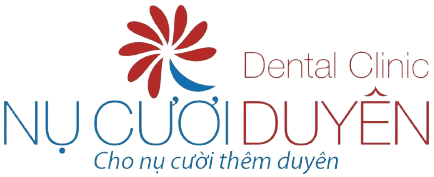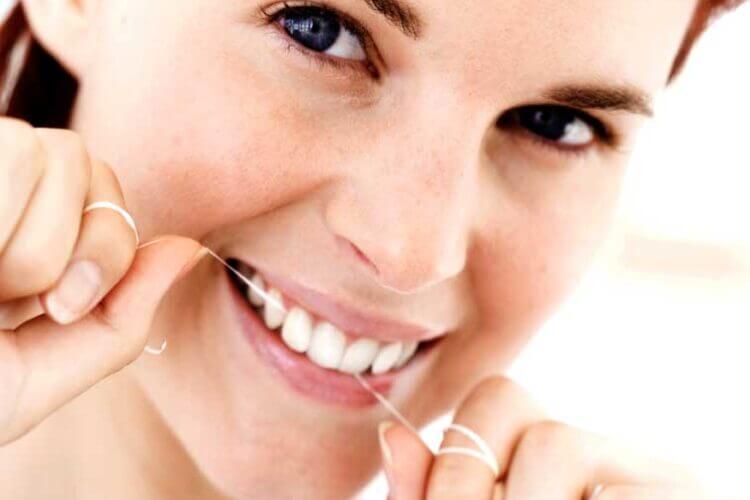What is dental floss?

Dental floss is used as a tool to effectively clean plaque and bacteria when used in conjunction with a toothbrush. Using dental floss helps ensure the optimal cleanliness of your teeth; this is a dental hygiene method that the dental field always recommends.
Types of dental floss on the market
Currently, there are two types of dental floss commonly used. That is the type of thread that is rolled up and the type of thread pick. Each type of floss has many different materials such as wax threads, plastic threads, nylon threads, etc. Depending on preferences and needs, each person will choose the appropriate type of dental floss. best.
Each type of floss has the common function of cleaning plaque on teeth.
Types of dental floss on the market
Most people are aware of using dental floss for oral hygiene, but few know the ideal times to use dental floss.
In reality, dental floss can be used at any time when deemed necessary, mainly to remove food particles left between teeth. However, using dental floss once a day is generally sufficient. Dentists recommend using dental floss at least once a day, and the optimal time is after brushing your teeth for the best results.
Why after brushing? The answer is that after using a toothbrush, using dental floss can help achieve more comprehensive cleaning of the teeth. It can also assist in getting fluoride from toothpaste into the spaces between teeth, providing effective protection for tooth enamel.
Steps to use dental floss properly
For the flossing method to be most effective, we should use it according to the following steps:
For rolled dental floss
Step 1: Pull a length of floss about 30 cm long, then roll both ends of the floss around the middle fingers of your hand.
Step 2: Leave a short length of about 5 cm in the middle and stretch it out.
Step 3: Use your index finger and thumb to guide the floss between your teeth to clean away plaque, be gentle while doing so.
Step 4: Use the floss to go into the base of the teeth (the area between the gum and the tooth base) and move gently, avoiding excessive force that could harm the gums.
Step 5: Finally, rinse your mouth with water or mouthwash to remove any remaining plaque and debris.
For toothpick form only
Step 1: Use the tip of a toothpick to insert between teeth to clean, only placing the floss close to the gums.
Step 2: Turn the toothpick head back, we will see the sharp part of the toothpick, use this part to push leftover food particles out of your teeth.
Step 3: Finally, rinse your mouth with water or mouthwash to remove remaining plaque and tartar.
Practical benefits of dental flossing method
The method of using dental floss is widely adopted due to its practical benefits, which are crucial for the health of our teeth. Here are some significant advantages of dental floss for our teeth:
Prevention of gum disease: Accumulated plaque over time can harbor numerous bacterial colonies that affect the health of our gums. Dental floss is effective in deep cleaning and promoting healthier gums.
Prevention of bad breath: Your breath may become a source of self-consciousness if your teeth harbor many bacteria. Dentists state that using dental floss can improve your breath.
Aesthetic improvement: Prolonged plaque buildup on teeth can cause discoloration and yellowing. Proper use of dental floss can enhance the color of your teeth.
Prevention of cardiovascular diseases, diabetes, and respiratory issues: The bacteria in the mouth can travel down the throat, affecting your respiratory system, or increase blood glucose levels. Dental floss can eliminate these bacteria, preventing such conditions.
Research from the American Dental Association also indicates that people who use dental floss for oral hygiene experience fewer dental and gum issues, leading to healthier and longer-lasting teeth.
Some notes when using dental floss
- It’s advisable to use dental floss after brushing your teeth: Dental floss will be most effective when used in conjunction with brushing.
- Avoid using too much force when using dental floss, as it can easily cause damage to the gums.
- Use a sufficiently long piece of floss for each tooth; don’t be stingy with the length. Each tooth requires a different length of floss. If you use the same piece for multiple teeth, plaque may not be completely removed. Also, avoid using floss that is already scratched for cleaning your teeth.
- Dental floss is just one tool for partial teeth cleaning. It should not be used as a substitute for other oral hygiene methods. The best approach is to combine the use of a toothbrush, floss, and mouthwash for comprehensive dental protection.
Should children use dental floss?

Flossing is suitable for everyone from the age of 3 years and up. Therefore, children in the above age group can use this method to clean their teeth.
However, dentists recommend that children should not use floss to clean their teeth on their own, but require adult help. Because children do not know how to apply enough force to the thread, using too much force will lead to scratches and bleeding gums, allowing bacteria to enter the wound and cause infection.
Maintaining oral hygiene directly impacts the health of our teeth and gums. Therefore, we should emphasize the daily practice of dental hygiene to ensure strong and healthy teeth!
If you have dental problems, don’t hesitate to contact us
Hotline: 0907 407 090
(Or) Fanpage: Nu cuoi Duyen Dental Clinic
You can make an appointment tại đây to check your dental condition!


